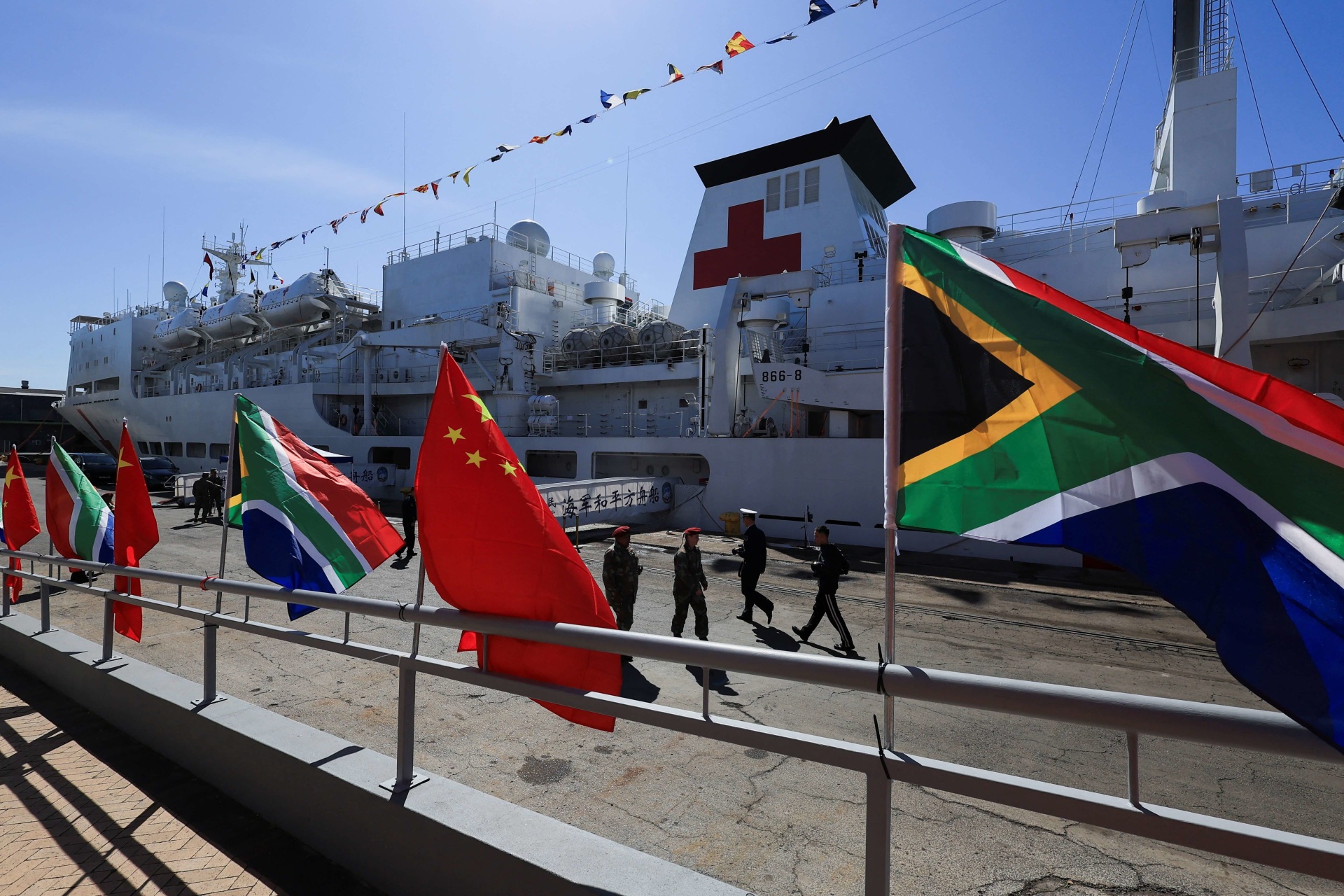China in Africa: August 2024
Throughout August, much of China’s engagement in Africa has set the stage for this week’s upcoming Forum on China-Africa Cooperation (FOCAC) in Beijing. While diplomats emphasized strengthening long-standing relationships with countries such as South Africa, Kenya, and Tanzania, announcements of new investments focused on the African energy needs of the future.

By experts and staff
- Published
By
- Alexandra DentResearch Associate, Africa Policy Studies
Diplomatic Tours: Early in the month, Minister for International Department of the Central Committee of the Chinese Communist Party Liu Jianchao led a delegation on a five-day tour of South Africa, emphasizing the important role of that country in the Brazil, Russia, India, China, South Africa, Iran, Egypt, Ethiopia, and UAE (BRICS) alliance and offering support to President Cyril Ramaphosa and the newly formed Government of National Unity. In Kenya, African diplomats toured sites of Belt and Road Initiative projects in the country along with China’s ambassador to Kenya, Zhou Pingjian, who said the upcoming FOCAC summit “will advance China-Africa relations and usher in a new era of shared prosperity.” Later in the month, China’s ambassador to South Africa, Wu Peng, also gave a speech emphasizing “record-high” investment in Africa from China in 2023 and promoting FOCAC as “the most important symbol of China-Africa solidarity and cooperation.”
Joint Military Exercises: In a continuation of celebrations for sixty years of China-Tanzania relations, Tanzania hosted Chinese and Mozambican security forces for Peace-Unity 2024, a series of joint counterterror military exercises. Along with People’s Liberation Army Navy (PLAN) ships to conduct sea drills, the Chinese fleet also included the PLAN Peace Ark hospital ship, which has so far made stops in Madagascar, Mozambique, the Seychelles, South Africa, and Tanzania to provide medical services for local residents.
Energy Investments: As experts speculate on the future of Chinese investment on the continent, a new report from Boston University found that Chinese lending to Africa increased in the past year for the first time since 2016. Ahead of FOCAC, several Chinese companies have rolled out announcements of new projects, many focusing on addressing Africans’ growing energy needs. In Botswana, a Chinese consortium, Sinotswana Green Energy, signed an agreement to finance the construction of a one-hundred-megawatt solar plant in the town of Jwaneng. Chinese firm Sokec and South Sudan’s state-owned petroleum company, Nilepet, signed a memorandum of understanding (MOU) to construct an oil refinery and storage facility. In Nairobi, on the sidelines of the China-Africa Digital Financial Inclusion Summit, renewable energy industry leaders signed an MOU for the China-Africa Renewable Energy Partnership, with the goal of unlocking external financing for renewables projects on the continent.
Ethiopia’s Debt Renegotiations: The Ethiopian government successfully restructured its sovereign debt obligations with creditors—of which China is the largest bilateral holder—through negotiations under the Group of Twenty Common Framework. The announcement helped allay renewed criticism that China engages in “debt-trap diplomacy” on the continent, with China’s senior diplomat in the country emphasizing that, even amid negotiations, China “supported Ethiopia’s admission into the BRICS family, demonstrating our sincerity and determination for pursuing common prosperity with Ethiopia and other emerging markets.”
Protests, Planes, and Pipelines: The month has not been without friction, however. In Uganda, activists have continued to protest Chinese and French national oil companies’ support for the East Africa Crude Oil Pipeline. In the past month, dozens of protesters have been detained by security forces for planned demonstrations, including some outside the Chinese embassy in Kampala. Due to a long-standing contract dispute, Chinese company Zhongshan seized three Nigerian presidential jets in France. Though one jet was returned as a sign of goodwill, Nigerian authorities accused the company of “undercutting and scamming” the country, and the embarrassing diplomatic row re-upped outrage among Nigerians over government spending.